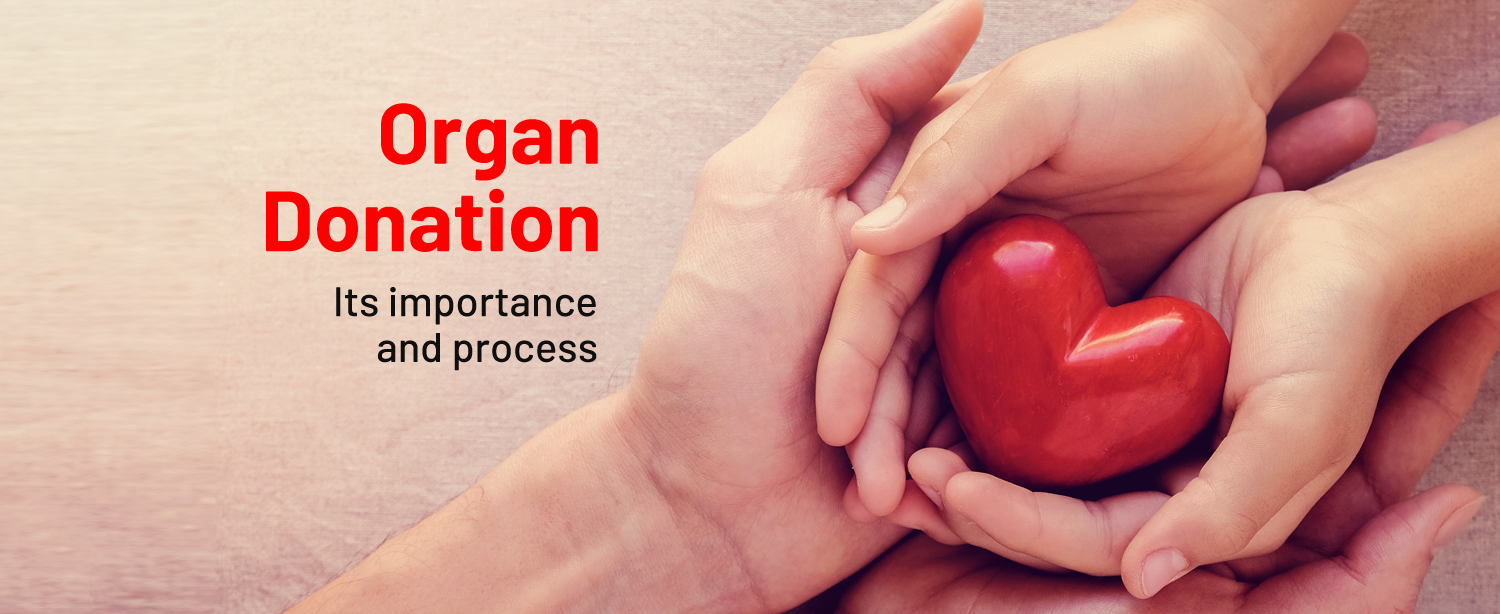13th August is celebrated every year as Organ Donation Day in India. Organ donation is the harvesting of an individual’s organs after he or she dies for the purpose of transplanting them into another person. The person who gives the organs is called a donor while a person who receives the organ is called a recipient. One brain dead donor can save up to eight lives of people suffering from end-stage organ failures. Donation affects more than donors and recipients. It also affects the families, friends, colleagues, and acquaintances who love and support those in need of transplantation, and who benefit from their renewed life and improved health after transplant.
Why India needs to boost “Organ Donation”
The huge gap exists even when an individual can save up to 8 lives. Awareness is the key to increase organ donor ratios in India. Here are a few statistics:
● 500,000 people die because of non-availability of organs
● 200,000 people die of liver disease
● 50,000 people die from heart disease
● 150,000 people await a kidney transplant
● 10,00,000 lakh people suffer from corneal blindness
Organ Donors in India
India remains a country with one of the lowest organ donation rates in the world. The organ donation rates in India are very poor around 0.3/million, as compared to some western countries where it is as high as 36/million, in the US it is around 26/million population.
Organ donation helps in a transplant that often means a second chance at life. Vital organs such as the heart, pancreas, liver, kidneys, and lungs can be transplanted to those whose organs are failing. It allows many recipients to return to a normal lifestyle. For others, a cornea or tissue transplant means the ability to see again or the recovery of mobility and freedom from pain
Who can be a donor?
Everyone can choose to be an organ donor, irrespective of age, caste, religion, community, current or past medical condition. Children can also be organ donors after taking consent for organ donation from their parents.
The Organ Donation process
Even though millions of people have registered to become organ donors, very few donors pass away in a way that allows organ donation. Here are some additional details about the organ donation process:
- Registering as a Donor
The process of donation most often begins with your consent to be a donor by registering your name in the national registry and informing your family. This is the first step to help save potential lives.
- Brain Death Testing
If the patient not responding to treatment and stimuli, doctors will perform a series of tests to determine if brain death has occurred. A patient who is brain dead has no brain activity and cannot breathe on his or her own. Brain death is death and it is irreversible. Only brain dead patients can become potential organ donors.
- Authorizing Donation
The healthcare authorities check if the deceased is registered as a donor on their registry. In India, the family’s consent is mandatory for organ donation and has the final say.
- The matching process
Healthcare specialists determine whether the organ is medically suitable for transplant. A series of tests on various parameters is done to help match an organ to a suitable recipient for transplant.
- Recovering the Organs
After removing the organ, surgeons connect it to a machine that keeps them working artificially. Doctors take utmost care while removing the organs. Most organs have limited life spans as below:- Heart: 4-6 hours
- Liver: 12-24 hours
- Kidney: 48-72 hours
- Heart-Lung: 4-6 hours
- Lung: 4-6 hours
- Transporting the Organs
Surgical teams work round the clock to co-ordinate between the retrieved organ and the recipient for a successful transplant. In some cases, a green corridor is created for an organ transplant. It is a demarcated, cleared out special road route created for an ambulance to enable the retrieved organ meant for transplant to reach the destined hospital within the stipulated time.
Take a step closer to helping others. Pledge to donate your organs after you are gone and also inform your family about your decision. Spread the message about Organ Donation. Please find below the link for further details on Organ Donation:


